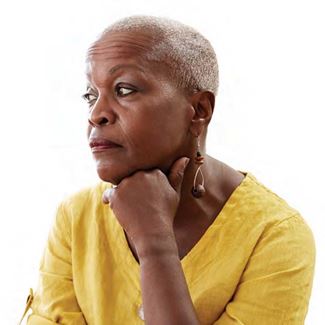Common Emotional and Personality Changes After Stroke
After a stroke, people often experience emotional and behavioral changes. This is because the brain controls our behavior and emotions. A stroke may make a person forgetful, careless, annoyed or confused. Stroke survivors may also feel anxiety, anger or depression. Their behavior depends on which part of the brain is affected and how extensive the injury is.

When five or more of these symptoms last for two or more weeks, a survivor may be having PSD.
Depression
Depression is common after stroke, affecting about one-third to two-thirds of all survivors. The symptoms can be mild or severe, often starting in the early stages of stroke recovery. Stroke survivors should be assessed for depression and treated when it occurs. It’s important to identify and treat post-stroke depression (PSD) as soon as possible. Untreated, it can lead to being in the hospital longer and can limit a survivor’s functional recovery.
The symptoms of PSD may vary and change over time, but patients and families should watch for:
- Persistent sad, anxious or “empty” mood
- Depressed mood; loss of interest/pleasure
- Sleeping problems
- Decreased motivation
- Responding with little or no emotion
- Feelings of hopelessness
- Feelings of guilt, worthlessness, helplessness (feeling like a burden)
- Decreased energy, fatigue, being “slowed down”
- Difficulty focusing, remembering, making decisions
- Appetite changes
- Thoughts of death or suicide
Anxiety
Changes related to stroke can lead to worry and anxiety. Getting around may be harder. There may be financial strains. Other sources of anxiety after stroke may be fear of falling because of balance problems or being anxious about speaking because of aphasia. Counseling can be helpful for anxiety. Sometimes anxiety and depression are both in play. If you’re anxious, talk with your health care team about potential treatments.
Pseudobulbar affect (PBA)
When parts of the brain that control emotions are injured, PBA (also called emotional lability or reflex crying) occurs. Most often, people cry easily. Some may laugh uncontrollably or have sudden mood swings. These are physical effects of the stroke. Telling the person not to cry won’t help. Instead, ask them how they want to be treated during an episode. Many people prefer that it be treated as a reflex, such as hiccups, and that conversation continue. Lability often lessens over time. If PBA is a problem for you, ask your health care provider about available treatments.

Before I had my stroke at age 33 in 2012, I thought of myself as the ideal mom. I had a job, one child in daycare and one in kindergarten, and was a wife. I thought I could do everything. I tried to keep the house clean; be the ideal teacher, who never brought any work home; and be devoted 100 percent to my husband, Curtis. You know, essentially, be Superwoman. I had everything under control. Or so I thought.
On June 6, 2012, all this came to a screeching halt. I had a massive brainstem stroke that robbed me of the ability to talk, walk and swallow. I was locked-in with no movement except my eyelids. I was trapped in my body, and the only thing to do was think.
I had six months of intensive speech, occupational and physical therapy. I gained back most of the physical abilities I had lost. I was prepared for the physical part. I was not prepared for the emotional part. While I was in the hospital, the doctors put me on antidepressants, expecting a little depression after what I had been through.
But once I was home, I knew I was experiencing more than depression. Uncontrollable crying and laughter were taking over my brain daily. It was an emotional struggle to make it through the day. I talked to my neurologist about the issue and was finally diagnosed with pseudobulbar affect (PBA). A combination of antidepressants and other medication brought the PBA somewhat under control.
While my body and mind were healing, I was learning to be a new person.
Life is not better or worse than it was, just different. Not only does my family have to accept that, but I do, too.
This may sound weird, but I’m kind of glad I had my stroke. It has helped me and my family to slow down and appreciate the little things in life like spending time together and being thankful for each and every day.
| Delanie Stephenson |
Excerpted and adapted from “Learning to Be a New Person,” Stroke Connection® Winter 2017